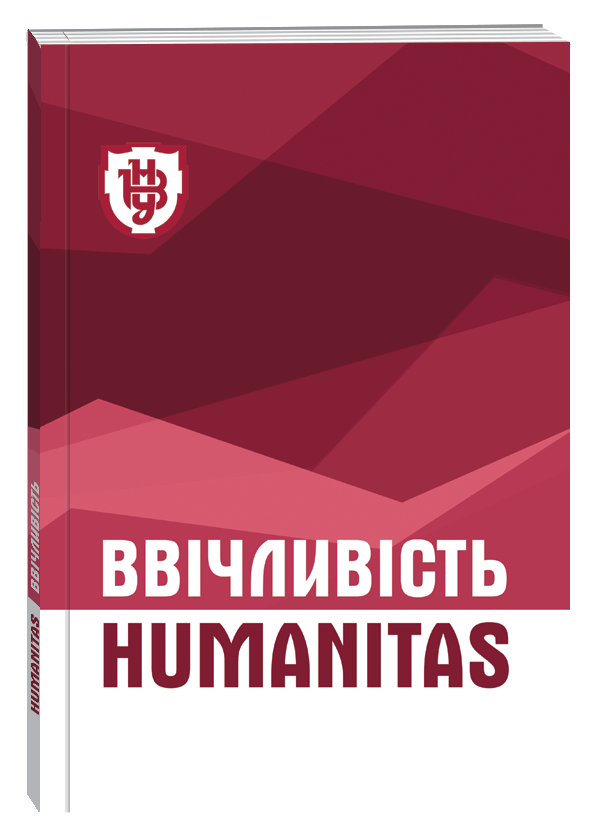EDUCATIONAL DOMAIN OF THE EUROPEAN CONTINENT IN TERMS OF SOCIAL DIMENSION
DOI:
https://doi.org/10.32782/humanitas/2025.2.29Keywords:
social dimension, educational management, lifelong learning, decentralization of education, social model of education, efficacy of education, equity of education, abilities, labour marketAbstract
Under the conditions of social and economic transformations from the mid-20th century to the early 21st century European countries have undergone fundamental changes in education. Effective innovations on the European continent are of primary importance, given the European integration processes in Ukraine. Therefore, it is deemed appropriate to analyze and rationally utilize its positive experience. The specified period is primarily characterized by expanding access to education for young people from various social groups. Investment in this domain increases significantly contributing to its development. The duration of compulsory education continues to extend. It is organized in three basic models: Scandinavian, traditional, and mixed. The low employment rate has become the dilemma for most European countries having led to the adjustment of educational strategies, in particular the concept of lifelong learning encompassing individual’s full life cycle. The emphasis in education development is placed on improving its efficiency. Measures are being taken to optimize educational management. Education is being decentralized to make better use of the resources that regional educational institutions have. Accessible and high quality education has become a basic right for every European citizen. At the very beginning of the 21st century, during the process of post-industrial society transformations, a new social model of education development has been worked out. It is based on the “personality is our first priority” motto and is defined by efficiency and justice. Efficacy and equity of education is ensured by intensifying decentralization, introducing an accountability system, modernizing teaching, reinforcing faculty involvement.
References
Локшина О. І. Зміст шкільної освіти в країнах Європейського Союзу: теорія і практика (друга половина ХХ – початок ХХІ ст.) : монографія. К. : Богданова А. М., 2009. 404 с.
Benavot A. The Diversification of Secondary Education: School Curricula in Comparative Perspective. IBE Working Papers on Curriculum Issues. 2006. No. 6. 27 p. URL: https://www.researchgate.net/publication/280131768_The_Diversification_of_Secondary_Education_School_Curricula_in_Comparative_Perspective
Benavot A., Reznik J. Lessons from the Past: a Comparative Socio-Historical Analysis of Primary and Secondary Education. The MIT Press. Edition: 1st. Chapter: chapter 3. 2007. P. 123–230. URL: https://www.researchgate. net/publication/316045536_Lessons_from_the_Past_A_Comparative_Socio-Historical_Analysis_of_Primary_and_ Secondary_Education
Dronkers J. Features of Educational Systems as Factors in the Creation of Unequal Educational Outcomes. Quality and Inequality of Education. 2010. 29 p. https://doi.org/10.1007/978-90-481-3993-4_12
Elgart, M. A. Can Schools Meet the Promise of Continuous Improvement? SAGE Publications. 2017. 6 p. https://doi.org/10.1177/0031721717745546
European Union. Communication from the Commission to the Council and to the European Parliament. Efficiency and Equity in European Education and Training Systems. 8.9.2006. COM (2006) 481 final. {SEC(2006) 1096}. Brussels: Commission of the European Union, 2006. 11 p. URL: https://eur-lex.europa.eu/legal-content/EN/TXT/?uri=celex:52006DC0481
Hart C. S., Sriprakash A. International Perspectives on Social Inequalities, Excellence and Aspiration in Education. International Studies in Sociology of Education 2017. Vol. 26, No. 3. P. 229–230. URL: https://doi.org/10.1080/0962021 4.2017.1359227
Kumari R. Continuous improvement in schools: Understanding the practice. International Journal of Educational Development. Elsevier BV. 2009. 12 p. https://doi.org/10.1016/J.IJEDUDEV.2008.02.006
Rodriguez Sh. Continuous Improvement in Education: A Toolkit for Schools and Districts. REL 2021-014. Regional Educational Laboratory Northeast & Islands. 2020. 95 p. URL: https://www.academia.edu/126772446/Continuous_Improvement_in_Education_A_Toolkit_for_Schools_and_Districts_REL_2021_014?nav_from=8d1e9e3a-14c2-4bca- bf79-5306eec31f63







